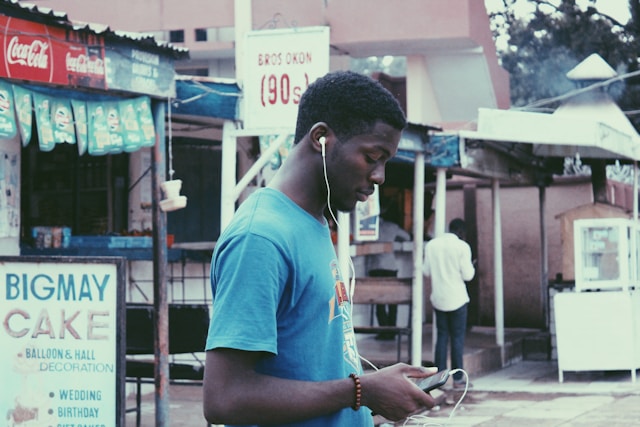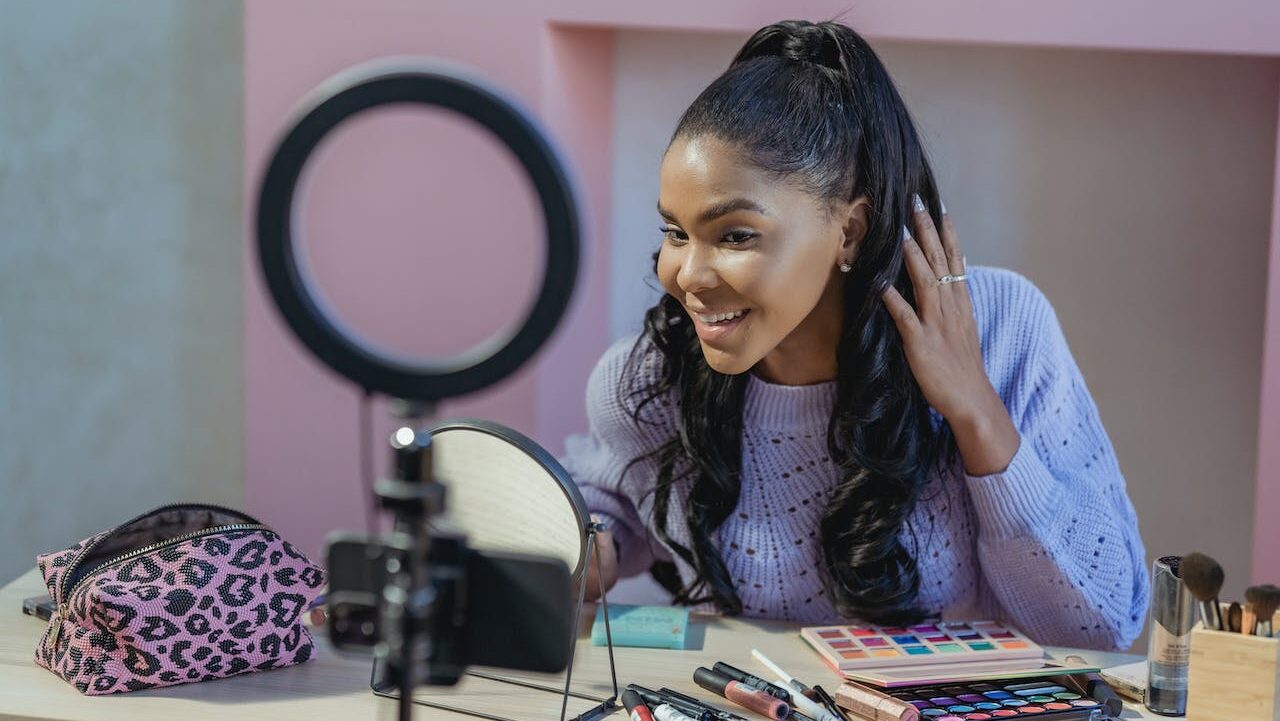In recent years, Africa has become a hotbed for Influencer Marketing, with a burgeoning digital landscape and a diverse array of content creators. In the dynamic world of digital content creation, Africa is emerging as a vibrant hub for the Creator Economy. With diverse cultures, languages, and a rapidly growing online presence, the African continent is witnessing a surge in influencers shaping the digital landscape. Let’s decode the factors contributing to the booming landscape of Influencer Marketing in Africa, unraveling the unique opportunities and challenges that creators face.
Influencer Marketing in Africa
In the dynamic realm of African influencer marketing, a remarkable shift is underway, challenging the traditional lag compared to global counterparts. Brands are awakening to the untapped potential of this emergent market, recognizing strategic opportunities that were previously overlooked.
Historically, brands hesitated to embrace African influencers, viewing the continent as an emerging market with uncertain conversion potential. However, the narrative is evolving post-COVID, where shrinking marketing budgets have compelled marketers to seek innovative approaches for driving organic traffic and revenue. This shift is an invitation for brands to reassess their perceptions and unlock the vast potential lying dormant within the African influencer sphere.
A Rising Wave of African Influencers

The digital age has opened up unprecedented opportunities for young voices to be heard, and Africa is no exception. A myriad of young influencers, hailing from diverse backgrounds and disciplines, are leveraging the power of social media to address pertinent issues and shape the continent’s narrative.
In the heart of Africa’s digital revolution, influencers have become cultural architects, shaping trends and preferences across diverse landscapes. From fashionistas to tech gurus, these digital mavens wield influence that extends beyond borders. Embracing the pulse of contemporary Africa, influencers seamlessly bridge the gap between tradition and modernity.
1. Diversity in Content
Africa’s richness lies in its diversity, and influencers across the continent are showcasing this diversity through their content. From fashion and beauty to technology and lifestyle, African influencers are carving out niches that resonate with both local and global audiences. Whether it’s Eastern Africa or Western, Sub-Saharan Africa or Southern Africa, influencers are showcasing not only the cultural variations but also the shared experiences that resonate with a global audience.
2. Local Languages and Global Appeal
Africa, a continent of myriad languages, poses a unique challenge for marketers. Enter influencers, linguistic maestros who effortlessly navigate linguistic nuances. Influencers leveraging native languages connect more authentically with their audiences, fostering a sense of community. Simultaneously, the global appeal of this content is expanding, breaking linguistic and cultural barriers. Whether in the lively souks of Marrakech, to the tech hubs of Nairobi or the bustling streets of Lagos, influencers are crafting a digital narrative that connects with audiences across vast distances.
3. Rapid Growth of Social Media
The proliferation of affordable smartphones and increased internet access has fueled the rapid growth of social media across Africa. Platforms like Instagram, Twitter, and YouTube are witnessing a surge in user numbers, providing influencers with a broader reach.
4. Rise of Nano-Influencers
While mega influencers command attention, the rise of nano-influencers is noteworthy. These individuals, with smaller yet highly engaged followings, are proving to be effective in niche marketing, catering to specific interests and demographics.
Challenges and Opportunities for African Influencers

1. Connectivity and Infrastructure Challenges
Despite the growth, infrastructure challenges persist in certain regions, affecting the reach and consistency of content creators. Limited access to high-speed internet and reliable electricity can hinder the creation and distribution of content.
2. Global Collaborations and Local Authenticity
African influencers are increasingly catching the eye of global brands. However, navigating collaborations with international companies presents challenges such as payment processing, cross-border regulations, and cultural alignment.
One key to successful influencer marketing in Africa lies in recognizing the power of local voices. Leveraging influencers deeply rooted in their communities provides a gateway to authenticity. Whether promoting sustainable practices in agriculture or endorsing cutting-edge tech solutions, these influencers amplify brand messages with a touch of local flair.
3. Leveraging Social Issues
The diverse cultural landscape in Africa requires influencers to approach content creation with cultural sensitivity. Striking a balance between global trends and local values is crucial to maintaining authenticity and resonance with the audience. Influencers in Africa are using their reach on social media platforms to address social issues. From environmental concerns to societal challenges, influencers are not only entertaining but also contributing to important conversations, making a positive impact. Aifluence has leveraged this aspect in numerous campaigns in the developmental sector.
Monetization Strategies for African Influencers

1. Local Partnerships and Sponsorships
African influencers are exploring partnerships with local brands and businesses. These collaborations not only provide a source of income but also contribute to the growth of the local economy.
2. Diversification of Income Streams
To mitigate uncertainties, influencers are diversifying their revenue streams. Beyond brand partnerships, revenue sources include affiliate marketing, sponsored content, and even launching their products or merchandise.
3. Educational Content and Consultations
Some influencers are tapping into the demand for educational content. Workshops, online courses, and consultations are avenues for influencers to share their expertise and generate income.
Navigating the Regulatory Landscape
1. Evolving Regulations
As the Creator Economy gains momentum, African countries are navigating the evolving regulatory landscape and adapting regulations. Influencers need to stay informed about changes in regulations related to content creation, advertising, and online activities.
2. Influencers as Cultural Ambassadors
In some regions, influencers are recognized as cultural ambassadors. This recognition brings opportunities for collaborations with tourism boards, cultural institutions, and international organizations.
How can brands partner with social media influencers in Africa?
The avenues for collaboration between global brands and African social media influencers are diverse and expansive. One emerging avenue gaining popularity, especially among small enterprises and burgeoning brands, is affiliate marketing. In simple terms, affiliate marketing serves as a performance-based strategy wherein influencers receive a percentage from each transaction stemming from their promotional efforts. For instance, if an influencer shares a product link in their Instagram bio, any ensuing purchase through that link entitles the influencer to a percentage of the generated profit.
For brands seeking fruitful collaborations, a strategic approach involves:
- Identifying influencers aligned with the brand’s voice, mission, and vision.
- Ensuring the influencer genuinely resonates with the brand, beyond monetary motives.
- Tailoring collaboration proposals to align with the influencer’s expectations and market dynamics—a sincere message carries significant weight.
- Engaging in open discussions about expectations and anticipated outcomes right from the collaboration’s inception.
- Delving into the campaign’s intricacies and articulating the rationale behind choosing a specific influencer.
- Granting influencers creative autonomy, recognizing that their individualistic approach is what established them as influencers.
- Prioritizing authenticity and relevance in the chosen influencer, forming the bedrock of a successful collaboration.
Conclusion
In summary, the world is taking note of Africa’s influencers, and the mutually beneficial synergy between brands and these digital pioneers is reshaping the marketing landscape. The landscape of African influencer marketing is undergoing a profound transformation. Brands that once hesitated are now recognizing the potential for strategic growth in this dynamic market. In navigating this exciting frontier, embracing the power of African influencers is not merely a choice but a pivotal imperative for brands aspiring to make a lasting impact on the diverse and dynamic African continent.
African influencers are not only building their personal brands but also contributing to the global conversation. As the Creator Economy continues to flourish, navigating challenges and seizing opportunities will be essential for influencers to leave a lasting impact on the digital stage.
It’s time to unleash the untapped potential and redefine the rules of engagement in the ever-evolving world of African influencer marketing.
FAQs
- Can African influencers collaborate with international brands? Yes, many African influencers collaborate with global brands, but challenges like cross-border regulations and cultural alignment need to be considered.
- How are African influencers dealing with infrastructure challenges? Influencers are adapting by optimizing content for lower bandwidth, leveraging offline capabilities, and advocating for improved infrastructure.
- What are the key monetization strategies for African influencers? Monetization strategies include local partnerships, diversification of revenue streams, and offering educational content and consultations.
- Are there specific regulations for influencers in Africa? Regulations vary across countries, and influencers need to stay informed about changes in regulations related to content creation, advertising, and online activities.
- How can African influencers balance global trends with local values in their content? Balancing global trends with local values requires cultural sensitivity. Influencers should understand their audience and tailor content that resonates with both global and local perspectives.


Leave a Reply